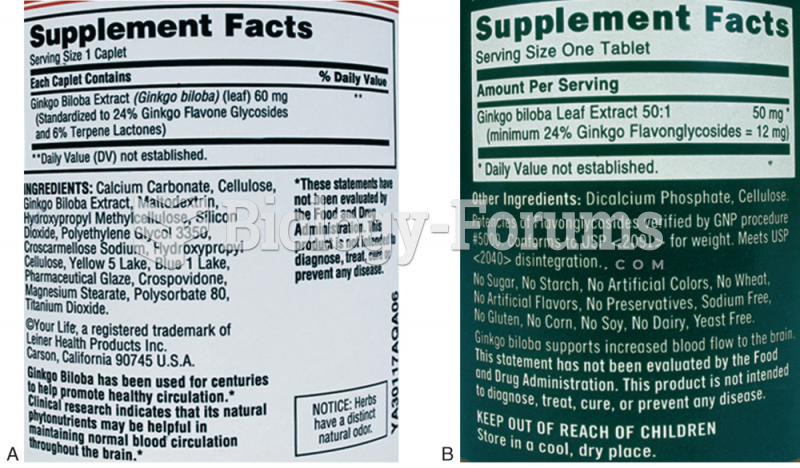Answer to Question 1
Correct Answer: 2
Rationale 1: The use of a generic brand would not be particularly dangerous.
Rationale 2: Ginkgo can cause increased bleeding time in clients, increasing the risk of hemorrhage.
Rationale 3: Taking an herb that one has not taken before has some risks, but it is not as dangerous as having an allergy to the ingredients.
Rationale 4: Using ginkgo does not pose a particular risk to those of African American ethnicity.
Global Rationale: Ginkgo can cause increased bleeding time in clients, increasing the risk of hemorrhage. The use of a generic brand would not be particularly dangerous. Taking an herb that one has not taken before has some risks, but it is not as dangerous as having an allergy to the ingredients. Using ginkgo does not pose a particular risk to those of African American ethnicity.
Answer to Question 2
Correct Answer: 3
Rationale 1: The USP certification addresses the purity, not the strength, of a product. Standardization identifies the strength of the herb or supplement.
Rationale 2: Standardization allows for strength comparisons among some available products.
Rationale 3: The active ingredient in some herbal supplements is standardized. Standardization uses a marker substance, such as a percentage of an herb's active ingredient, to quantify a product's potency. This can allow for strength comparisons among available products.
Rationale 4: Not all herbal preparations or supplements are standardized.
Global Rationale: The active ingredient in some herbal supplements is standardized. Standardization uses a marker substance, such as a percentage of an herb's active ingredient, to quantify a product's potency. This can allow for strength comparisons among available products. The USP certification addresses the purity, not the strength, of a product. Standardization identifies the strength of the herb or supplement. Standardization allows for strength comparisons among some available products. Not all herbal preparations or supplements are standardized.







